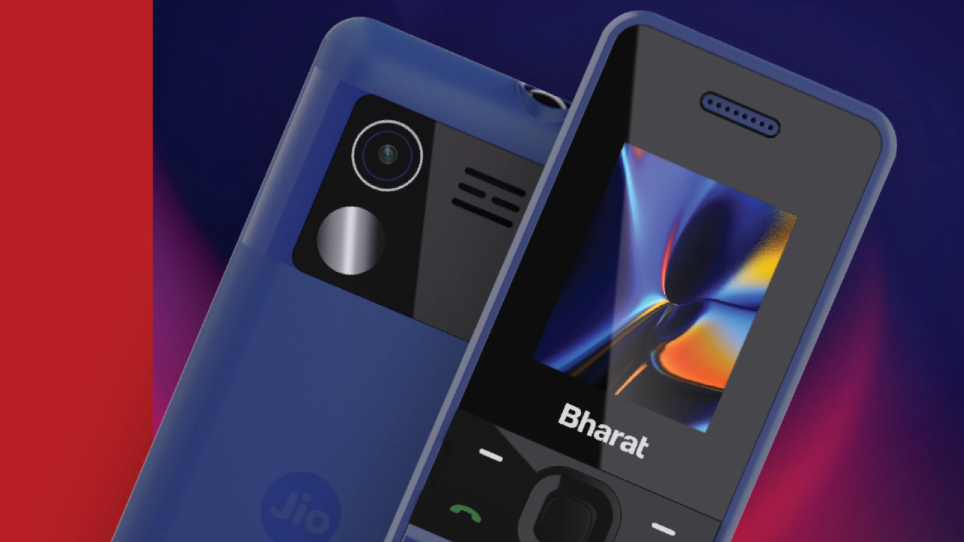
One of Asia’s biggest telecom companies has released a new mobile phone that aims to convince hundreds of millions of consumers in India to make the jump from 2G to 4G. Jio Bharat costs a mere 999 Indian Rupees (about £10, US$12, AU$18) making it by far the cheapest 4G handset in the world right now.
It is not technically a smartphone, as it doesn’t run on a mainstream mobile operating system (e.g. Android) but the Jio Bharat does share a subset of features including the ability to handle mobile payments (via Reliance’s support for UPI - an instant payment system developed by National Payments Corporation of India) and JioCinema and JioSaavn, the company’s own proprietary movie and music services. There’s no Facebook though, or WhatsApp or any of the popular applications that are now staple items for modern smartphones.
The phone itself is reminiscent of the good ol’ candybar dumb phones: it has a 1.77-inch color screen, support for 128GB microSD card - great as the internal memory is only 48MB - and a 1000 mAh battery. There’s also a VGA camera and unlike many flagship smartphones today, there’s also a charger bundled.
Alongside the device, Jio Platform launched a new monthly plant that costs 123 Indian Rupees per month and 1234 Indian Rupees per year. You get 14GB of data usage with unlimited voice calls and messages; the data sadly doesn’t rollover. The phone is locked as well so you can't put another SIM.
“The new Jio Bharat phone is...at the centre of innovation, and it continues to demonstrate our focus on bringing disproportionate and true value for different segments of users with meaningful, real-life use cases,” Akash Ambani, the founder and chairman of Jio, said in a statement.
The start of something big
What does that mean for the rest of the world? Over the next few months, there could be tens of millions of new 4G connections in India (the total addressable market stands at around 250 million) and that could spill over the rest of the world as Reliance, the parent company of Jio Platforms, is roping in other companies to build cheap 4G handsets.
As a result, Indian phone manufacturer, Karbonn, has also launched a 999 Indian Rupees rugged 'smartphone', similar to the Jio Bharat, a move that could also help drive down the price of the average entry level Android-based device globally. Jio’s own Jiophone Next costs about 5x the price of the Bharat, which is still too expensive for many.
4G connectivity is changing how millions of mobile users consume data services across the world, and while that’s a fraction of the total number of mobile 4G users, such ventures provide with a pathway for increase ARPU (average revenue per user). Fast, always-on Internet will finally open a window of opportunities for some of the poorest people in the world’s most populous country.
From gig operators to freelancers, one-person bands to small businesses, the ability to use your mobile to communicate, capture data and pay will help bring the cost of digital transformation down significantly.







